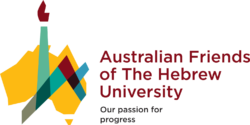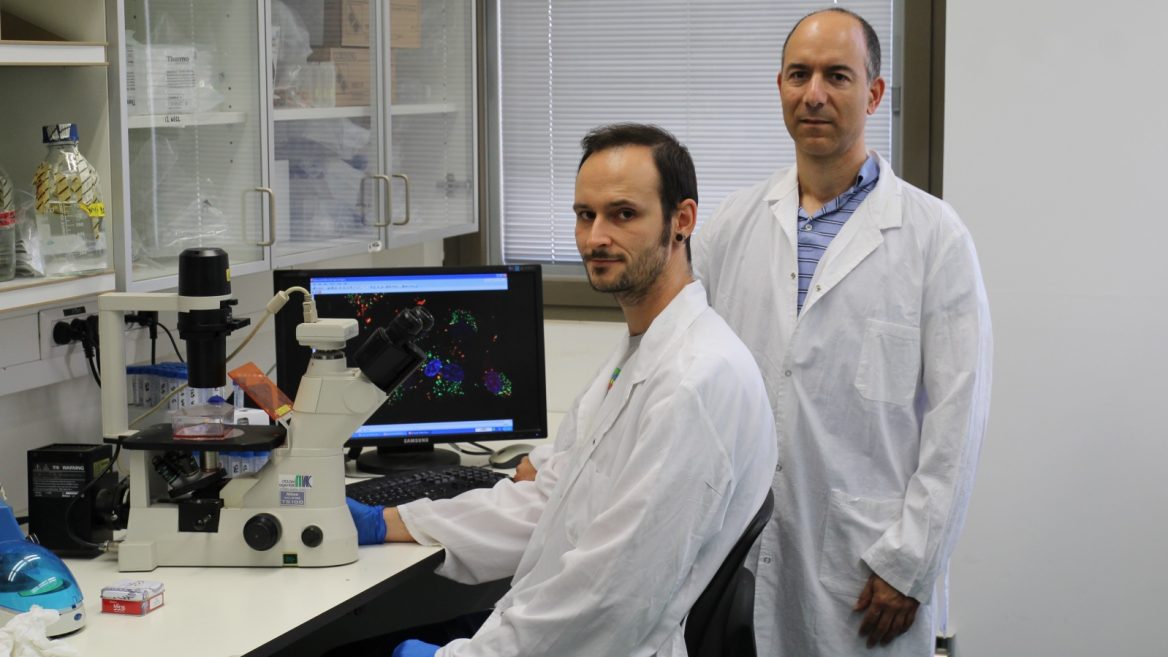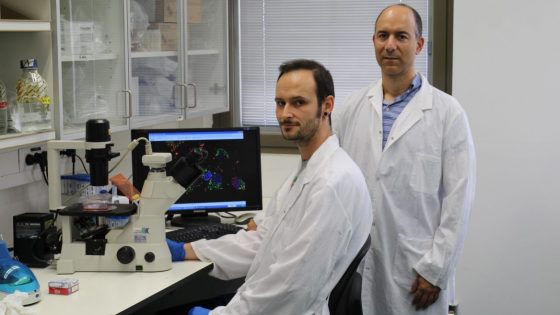Professor Rotem Karni, of Hebrew University’s Institute for Medical Research-Israel-Canada, has designed a molecule that inhibits brain (glioblastoma) tumor growth by regulating the tumor-produced proteins.
Glioblastoma is a serious and incurable brain cancer. Until now, a patient diagnosed with glioblastoma typically has 11-20 months to live, and cells affected by this cancer quickly become resistant to chemotherapy treatment.
In a two-step approach, Karni and his colleagues, Maxim Mogilevsky, Odelia Shimshon and Eylon Yavin of the Hebrew University Pharmacy School’s Institute for Drug Research; Saran Kumar and Eli Keshet of Hebrew University’s Department of Developmental Biology and Cancer Research; and Florian Heyd of the Institute of Chemistry and Biochemistry’s Laboratory of RNA Biochemistry at Freie Universität Berlin developed a molecule which inhibits cancer growth and dials down the tumor stimulation hormone. Additionally, it offers the benefit of the tumors’ re-sensitivity to chemotherapy.
“Our research presents a novel approach for glioblastoma treatment. In the future, we’ll be able to tailor treatments for patients based on the amount of cancer-inhibiting proteins that their tumors produce,” said Karni.
Their updated approach lends itself well to personalized cancer treatment paradigms. The technology’s patent is already registered in the US and Europe through Yissum, the Hebrew University’s technology transfer company.


